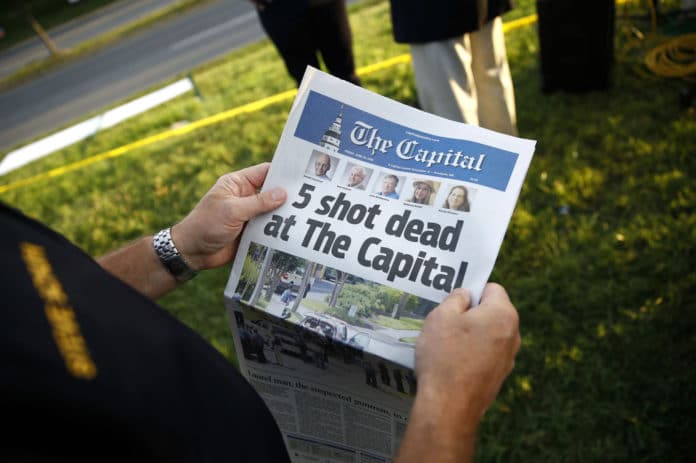Probably one reason I got into journalism is that it can be fun. From an early freelance job taking photos at some fancy Washington, D.C., fundraising soiree (don’t take shots of politicians holding a drink or cigarette) to a two-week trip to China before it got all moderned up, it can be a gas.
I’ve seen things and experienced things I never imagined possible growing up in the shadow of Texas Steel on Hemphill Street. One of the things I’ve loved has been the parade of oddball characters I’ve met along the way. That was certainly true at my first paying gig at the Grand Prairie Daily News. The office was on Main Street in Grand Prairie and plenty of our good stories wandered – if not stumbled – in off the street. A nearly weekly occurrence was someone proudly bringing in some giant or oddly-shaped (or both) vegetable they’d grown. We’d snap a photo, write a cutline and voila, instant story. The Instagram of its day.
Or it might be a barber who had been in business for 40 years and thought he deserved a story. He did, though as a storyteller, I recall, he was a great barber.
While it was great to have this open window to the world of Grand Prairie, there would be people who were angry with the paper for whatever reason or wanted us to investigate some city official. Ninety percent of those could be reasoned with. Another five percent were moms whose kids we had wronged because our photo of their baseball team was out of focus and we had ruined their child’s chances in the big leagues. We could never satisfy them. The other 5 percent? They could be a problem. We had a pretty good gatekeeper, a longtime Grand Prairie resident who was tough enough to intimidate anyone who looked like trouble. Her daughter worked at the paper, so she could turn Mama Bear when needed. No one wanted to tangle with her.
I do remember my editor sending me out to get one guy’s story. This rough-looking gentleman had a beef of some sort with the cops. I think he had a big “For Sale” sign on city property or something and they told him to take it down.
I went out for coffee with him at Millar Drug Store across the street to hear his story. At some point in his tirade against the cops, he pulled out several bullets and placed them on the counter. “I’ve got these just in case,” he said. In case of what? I wondered, realizing that somewhere along the line I had lost control of this interview. Interview terminated, I went and told my editor what a snipe hunt of a story she’d assigned me. She or the publisher told the cops, who basically said the guy was a bit of a nut case. This was in the early 1980s and workplace violence, though not unheard of, was not that common. Ironically, about a year later, I would cover a workplace shooting in Grand Prairie that left six people dead.
I hadn’t thought of the guy with the bullets on the counter at Millar Drug in a long time until the deadly attack at the Capital Gazette in Annapolis on June 28.
Suspect Jarrod Ramos, 38, has a well-documented history of harassing the paper’s staff. He filed a defamation suit against the paper in 2012 that was thrown out as groundless and often railed against them in profanity-laced tweets.
Ramos’ ire began with an online harassment and stalking case stemming from contact with a high school classmate in late 2009 or early 2010. The woman eventually went to police, and Ramos pleaded guilty to a misdemeanor harassment charge. The newspaper’s story about the case touched off a yearslong tirade from Ramos.
A barrage of menacing tweets led to an investigation five years ago, but a detective concluded Ramos was no threat, and the paper didn’t want to press charges for fear of “putting a stick in a beehive.”
By all accounts, the Capital Gazette was a bit like the Grand Prairie Daily News, a newspaper that welcomed residents of the community to bring in their stories, grievances and outsized vegetables for an airing in public. It’s a great part of American life, bringing a community together.
There was no online harassment in the 1980s. That’s added a new twist. People who are angry enough can vent their frustrations – anonymously, most of the time – through some electronic medium, as did the Capital Gazette suspect. Back then talk radio mostly covered UFOs, aliens, Oak Island and JFK conspiracies. Politics was a minor player then, not front and center like it is today.
We had a pretty open-door policy in Grand Prairie and I loved having someone wander in with a great story, a potential scoop or a strange looking zucchini. But where does that measure up when balanced against health and safety?
Journalists on the border or in South America know what they are up against when they are covering the drug trade. A few years back I heard Alfredo Corchado, the Mexico border correspondent for The Dallas Morning News speak about his work covering drug gangs and cartels. It takes other-level courage to tackle stories like that. They need to be told and it takes a special guy like Corchado to tell them His 2008 book, Midnight in Mexico, reports on the impact the drug cartels have on people on the border along with the many threats he faced writing those stories. It can be harrowing reading. Cojones? He’s got them.
Telling a community’s story – good or bad – is, after all, part of a newspaper’s central charter, basically fulfilling the basic tenets of the First Amendment, freedom of speech, the open exchange of ideas. It’s one of the greatest things about America – you know, that country whose birthday we just celebrated with fireworks, hot dogs and beer. We fought for those freedoms. We shouldn’t have to die for them in the workplace.
The Associated Press contributed to this story.
Robert Francis is editor of the Fort Worth Business Press.








